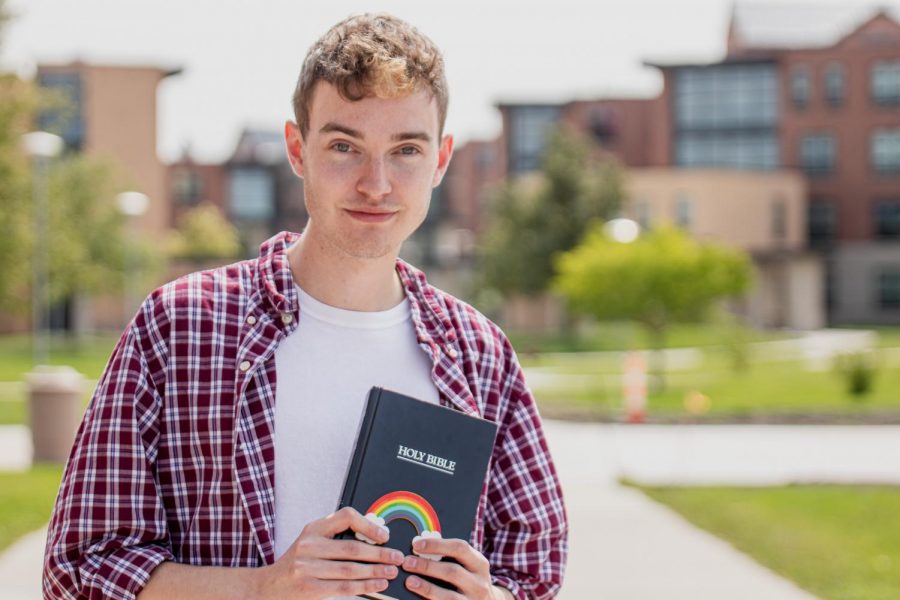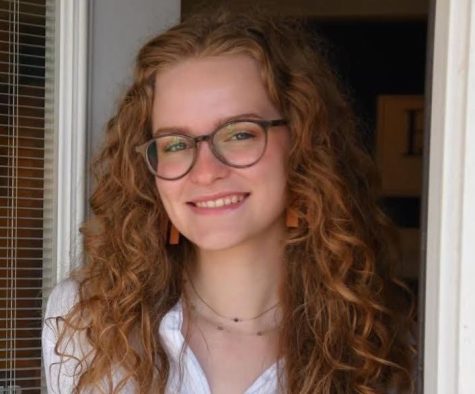Religion and sexuality: Two parts of one identity
September 16, 2020
Sunday mornings, in the pews of Bethel Baptist church in Brookings, sits Amanda Jensen. Her connection to God is strengthened and her heart overflows with praise. She feels welcomed and accepted by this community; however, that was not always the case.
Jensen is asexual. She grew up in a Christian home and would attend church, just as she does now. But her old pastors and youth leaders made her feel unwelcome and sinful for how she identifies.
“I felt ashamed,” Jensen said. “I asked one of my youth leaders ‘If I wasn’t straight, do you think a pastor would officiate my wedding?’ and he said, ‘probably not.’ He tried to convince my parents to sign me up for conversion therapy after that.”
Understanding and coming to terms with one’s gender or sexuality can be a grueling process, and once they accept who they are, trying to find where they belong in the religion that has accepted them for so long is like a second identity crisis.
How does one be queer when the Bible, and many Christians, push a narrative that queerness is a sin and anyone who identifies that way will be condemned?
“If a real church family loved me, they wouldn’t try to get this idea in my head that sex was a really important thing in a relationship when you’re married. And it’s not,” Jensen said. “I am not ashamed to be asexual anymore, but if a church is going to treat that as a sin, I don’t want that.”
At Jensen’s previous church, members would continuously preach about the joys of heterosexual love and conventional marriage tropes within the Chrisitan faith.
“A big thing was that women are supposed to please their husbands and be submissive to their husbands and ‘go forth and prosper.’ I don’t want that,” she said.
This is not the story in every Christian community, though. For Cade Bruna, a bisexual music education major, his faith and queerness are intermixed and have always been a part of his life.
“There is no reason why it has to be separated,” Bruna said. “It’s sad that the queer community has it ingrained in them that it has to be. I am a firm believer, so I can’t live my life without thinking about God, but I also can’t live my life without thinking about Lady Gaga.”
Bruna’s experience growing up wasn’t as harrowing as Jensen’s or many other queer kids, but he still recognizes the struggles other’s have faced. Bruna has dealt with his own struggles and reservations within the LGBTQ community and spoken up about his faith.
“As a queer person, I feel like I am always afraid to talk about God,” Bruna said. “I feel like people will think I’m less of a Christian.”
However, Bruna says that while it’s scary because of the negative connotations Christians can uphold to, religious students at South Dakota State University are accepting.
“It’s such a loving community, amongst our generation especially,” Bruna said. “At these student groups like Oasis, never once has anybody been like ‘you’re going to hell.’”
Queer culture is something that has taken decades for people to feel proud of, but it is an entirely different struggle to be a proud, queer Christian. However, with each passing generation, the intersectionality of the LGBTQ community and religious faith becomes increasingly defined and less stigmatized.
“We’re all just loving Jesus, but also loving the gays,” Bruna said.























